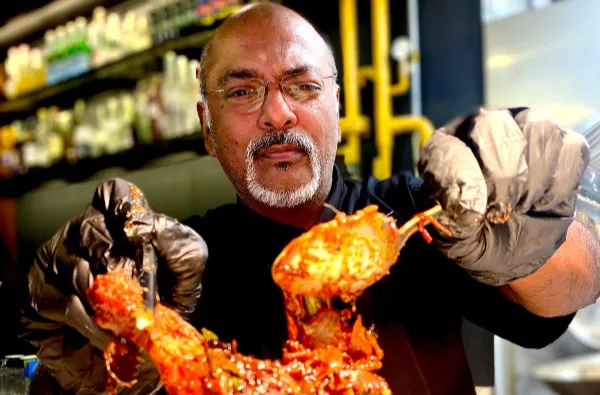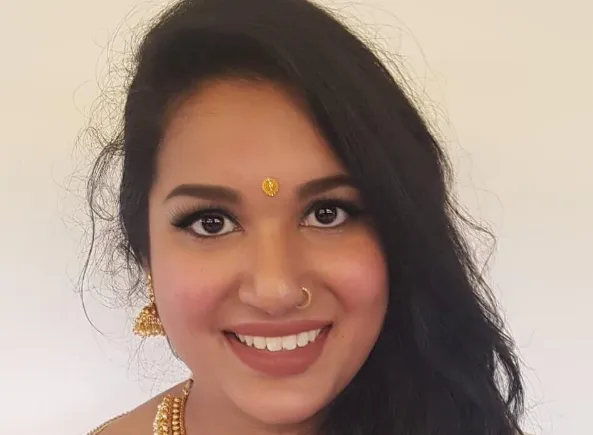Culture is not a competition
A response to Chef Shankar Santhiram

Shankar S Santhiram
Image: Facebook
I RECENTLY came across the Malaysia Kumar podcast episode titled “Why I always talk in English” featuring Malaysian celebrity chef Shankar S Santhiram.
He spoke at length about his December 2024 trip to South Africa when he prepared traditional Malaysian Tamil sappadu (food). As a South African of Tamil heritage myself, and having visited Malaysia recently, I was initially intrigued. There is always value in hearing how diasporic communities view one another, especially if the analysis is approached with sincerity and respect. However, what unfolded in the episode was not simply an exploration of cross-cultural insights, but a troubling display of cultural condescension, pompously wrapped in the language of Tamil pride.
Santhiram spoke affectionately about how Tamil played a “huge role” in his life - though he chose to swap Tamil and speak in English to “reach a wider audience” and to entice non-Indians, such as native Malays, to sample “Malaysian Tamil food”. Fair enough. Adaptability is something all diasporic communities understand. But the conversation took a disappointing turn.
Santhiram went on to point out that South Africa only had around 1.3 million Indians, about half the Indian population of Malaysia. Using this statistic as a foundation, he confidently claimed that Tamils in South African have forgotten their cultural ways, language, and even their food. This is where I began to fume.
To imply that South African Tamils are “culture-less” is not just inaccurate; it is downright deeply disrespectful. Like Malaysia, South Africa’s Indian community was forged through colonialism, indenture, and marginalisation. Our ancestors arrived with little, survived apartheid, and yet managed to pass down language, religion, and cultural traditions, often at great personal cost.
Our way of speaking Tamil may sound different. Our breyani might not be what you would find in Malaysia’s Little India Penang or Brickfields. But these are not signs of forgetting or discarding the recipe - they are markers of adaptation and resilience.
We still chant the Thirukural or sing from the Thevaram at temple functions. We still mark Thaipusam with kavady processions that stretch for kilometres. We still light lamps on Karthigai Deepam; gather for prayer evenings; and teach some Tamil in community halls where government support is scarce. This is not the absence of culture, Santhiram Aiyā. It is in fact its preservation, against great odds.
Indian food is a powerful lens through which to view identity. But food, like language and rituals, evolves wherever it takes root. In Malaysia, Tamil food has absorbed Malay and Chinese influences: just look at roti canai, banana leaf rice, bold curries with coconut milk and heaps of noodles on the plate with almost every meal.
In South Africa, Indian dishes are fused with local realities: bunny chow, tantalising mixed vegetable curries with madumbe, dried fish and boiled eggs, spicy tinned-fish, mutton, Cornish chicken or prawn biryani, fiery pickles, and curry powders that reflect both Indian heritage and South African necessity.
Neither Malaysian Tamil or South African Tamil cuisine is more “authentic”. They are both valid cultural expressions, shaped by context, by climate, colonialism, and community. To suggest South African food has lost its Tamil essence simply because it doesn't look like Malaysian Tamil cuisine is to miss the entire point of diaspora: we don’t exist to mirror India or each other; we exist to remember through adaptation, Santhiram Sir.
In the new “Rainbow Nation” that constitutes South Africa, there is a greater need for interculturalism where other cultures are explored and appreciated by those whose roots are not in that culture. According to Richard Schechner, one of the founders of Performance Studies, “intercultural exchange takes a teacher; someone who knows the body of performance of the culture being translated. The translator of culture is not a mere agent, as a translator of words might be, but an actual culture-bearer”.
Full marks to chef Santhiram for his Tamil pride, a quality I too strongly espouse. But when that pride turns into prescription, telling other communities how they should “be more like us”, it becomes entirely something else: a cultural hierarchy, a holier-than-thou attitude that I despise.
The irony is stark. A man who chooses to speak English “to be accessible” criticises another community for not speaking enough Tamil. A chef who blends cultures to make Tamil food more appealing to others, accuses South Africans of diluting their own. It’s a contradiction that echoes a deeper issue: internalised comparison, rather than global solidarity.
South African Tamils, like their Malaysian counterparts, are not cultural clones of India. We are not defined by numbers. We are not waiting to be corrected. We are part of a global Tamil story and forged on the anvil of reinvention, resistance, and rootedness. One where culture is not a competition, but a conversation.
So instead of asking South African Tamils to be more like Malaysians, perhaps it’s time for Santhiram Anna to ask how our differences enrich each other and what that says about the strength of our shared heritage.

Saranya Devan
Image: Supplied
Saranya Devan is a theatre-maker, dance performer, academic and proud Tamilian. She holds an MA in dance from UCT, and a MA in Bharatha Natyam from the University of Madras.
** The views expressed do not necessarily reflect the views of IOL or Independent Media.
Related Topics: